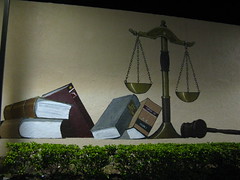 Image by srqpix via Flickr
Image by srqpix via Flickr
Once again, the court's decision focused on evidence of control over the vehicle, rather than simply the fact that he was found behind the wheel of a stationary vehicle while in an intoxicated condition. This makes sense. After all, the intent behind DUI laws is to prevent people from driving while intoxicated, since that's when the risks inherent in driving while intoxicated kick in. If you drive a car while under the influence of alcohol, you put others on the road at risk. However, that danger is not present when a person sleeps in a vehicle while intoxicated. For that reason, many states have adopted the rationale behind the New Mexico and Pennsylvania courts' decisions. Visit Americas Top DUI and DWI Attorneys at www.1800dialdui.com or call 1-800-DIAL-DUI to find a DUI OUI DWI Attorney Lawyer Now!The vehicle was parked at the time Verdekal, 27, of West St. Mary’s Road, was discovered, and police could not prove that he had actually operated the car in an intoxicated state...
The key issue in the Verdekal and other cases revolves around a provision within the drunken driving statute that permits police to charge a driver - even if the vehicle is not moving - as long as the officer can show the operator was in “actual physical control” of the vehicle. The problem for police has been in how appellate courts have interpreted what constitutes “actual physical control,” McMonagle said...
(T)he courts have held that police must look at the “totality of the circumstances” in making that call. There must be some other evidence – such as the car being stopped in the middle of the road, or its tire up on a curb – that would indicate the driver had driven the vehicle while intoxicated prior to the arrival of police at the scene.


No comments:
Post a Comment